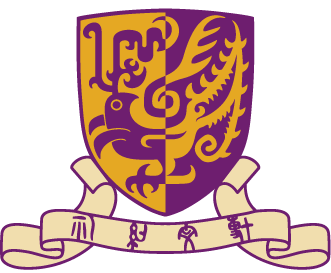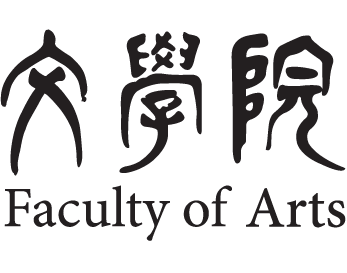PHI3111
Pre-Ch'in Confucianists
2009-2010 |
Second Term
Philosophy Major
W 02-04
UCA 103
Cheng Chung-yi
PHI 3111 先秦儒家哲學
課程簡介
-
本課共分八專題,旨在通過閱讀《論語》、《孟子》及《荀子》的重要篇章及有代表性的近人研究,從不同的角度如自我、社群、自然與天道等,來使學員對先秦儒學有較深入的了解。
-
本課的目的不在提供既定的觀點而在於訓練學員閱讀、了解及運用原典的能力,並由之作進一步的哲學思考。
課業要求
-
導修,佔總成績 40% 。
-
期末論文(不少於 5000 字),佔總成績 50% 。
-
於教學網站討論區發表意見及參與討論,佔總成績 10% 。
講授專題
一、 經典詮釋的方法論省察
建議閱讀材料:
- 洪漢鼎:《詮釋學——它的歷史和當代發展》,北京:人民出版社, 2001 。
- 劉昌元 :〈哲學解釋學、方法論與方法〉,《社會理論學報》 1:2 ( 1998 )。
- Richard E. Palmer, Hermeneutics: Interpretation Theory in Schleriermacher, Dilthey, Heidegger and Gadamar , Evanston : Northwestern University Press, 1969.
二、 綜論:先秦儒學的發展與研究
建議閱讀材料:
- 李零:《郭店楚簡校讀記》,北京:北京大學出版社, 2002 。
- ?俊傑:《 孟學思想史論(卷二) 》,台北:中央研究院中國文哲研究所籌備處, 1997 ,第一章〈序論〉,頁 1-62 。
- 王靈康:〈英語世界的荀子研究〉,《國立政治大學學報》 11 ( 2003.12 ),頁 1-38 。
- 勞思光:《新編中國哲學史》,台北:三民書局, 1995 增訂八版,冊一,第三章〈孔孟與儒學〉、第六章〈荀子與儒學之歧途〉,頁 101-203 、 329-350 。
- Benjamin Schwartz, The World of Thought in Ancient China , Cambridge , Massachusetts : The Belknap Press of Harvard University Press, 1985, Ch.3 “Confucius: The Vision of the Analects”, pp. 56-134; Ch.7 “The Defense of the Confucian Faith: Mencius and Hsun-tzu”, pp.255-320.
- John Knoblock, Xunzi: A Translation and Study of the Complete Works , Stanford , California : Stanford University Press, 1988, Vol.1, “General Introduction”, pp.3-128.
三、 孔子的仁與禮
建議閱讀材料:
- 唐君毅:《中國哲學原論——原道篇(卷一)》,台北: 學生書局 , 1984 台四版,第一篇,第一章〈孔子之仁道(上)〉、第二章〈孔子之仁道(下)〉,頁 71-109 、 110-149 。
- Herbert Fingarette, Confucius: The Secular as Sacred , Illinois : Waveland Press, 1998 reissued.
- Herbert Fingarette, “Following the ‘One Thread” of the Analects”, Journal of the American Academy of Religion , Thematic Issue S, 47, no.3 (1980).
- Tu Wei-ming, Confucian Thought: Selfhood as Creative Transformation , Albany : SUNY, 1997 eighth printing, V. “Jen as a Living Metaphor in the Confucian Analects”, pp.81-92.
- Shun Kwong-loi, “ Ren 仁 and Li 禮 in the Analects ”, in Confucius and the Analects: New Essays , ed. by Bryan W. Van Norden, Oxford & New York : Oxford University Press, 2002, pp.53-72.
四、 孟子的性善
建議閱讀材料:
- 牟宗三:《圓善論》,台北: 學生書局 , 1985 ,第一章〈基本的義理〉,頁 1-58 。
- 唐君毅:《中國哲學原論——導論篇》,台北: 學生書局 , 1986 ,〈原心上:孟子之性情心與墨家之知識心〉,頁 90-119 。
- 李明輝 :《康德倫理學與孟子道德思考之重建》,台北:中央研究院中國文哲研究所籌備處, 1994 ,頁 1-9 , 71-116 。
- Bryan W. Van Norden, “The Virtue of Righteousness in Mencius” in Confucian Ethics: A Comparative Study of Self, Autonomy, and Community , ed. by Kwong-loi Shun & David B. Wong, Cambridge : Cambridge University Press, 2004, pp.148-82.
- Joel J. Kupperman, “Tradition and Community in the Formation of Character and Self”, in Confucian Ethics: A Comparative Study of Self, Autonomy, and Community , pp.103-123.
五、 孟子的王道
建議閱讀材料:
- 徐復觀:〈孟子政治思想的基本結構及人治與法治問題〉,收氏著:《儒家政治思想與民主自由人權》,台北: 學生書局 , 1988 增訂再版,頁 121-132 。
- 陳熙遠:〈聖王典範與儒家「內聖外王」的實質意涵——以孟子對舜的詮釋為基點〉,收?俊 編:《孟子思想的歷史發展》, 台北:中央研究院中國文哲研究所籌備處, 1995 ,頁 23-67 。
- Wm. Theodore de Bary, A sian Values and Human Rights: A Confucian Communitarian Perspective , Cambridge , Massachusetts : Harvard University Press, 1998, pp.1-40.
- Henry Rosemont, Jr., “Whose Democracy? Which Rights? A Confucian Critique of Modern Western Liberalism”, in Confucian Ethics: A Comparative Study of Self, Autonomy, and Community , pp. 49-71.
六、 荀子的性惡
建議閱讀材料:
- 牟宗三:《荀學大略》,收氏著:《名家與荀子》,台北: 學生書局 , 1994 ,頁 191-252 。
- Antonio S. Cua, Human Nature, Ritual, and History: Studies in Xunzi and Chinese Philosophy , Washington D.C. : The Catholic University of America Press, 2005, Essay 1 “Philosophy of Human Nature”, pp.3-38.
- D. C. Lau, “Theories of Human Nature in Mencius and Xunzi” in Virtue, Nature and Moral Agency in the Xunzi , pp.188-219.
- Joel J. Kupperman, “Xunzi: Morality as Psychological Constraint”, in Virtue, Nature and Moral Agency in the Xunzi , ed. by T. C. Kline III & Philip J. Ivanhoe, Indianapolis , Cambridge : Hackett Publishing Company, 2000, pp.89-102.
七、 荀子的隆禮
建議閱讀材料:
- 廖名春:《荀子新探》,台北:文津出版社, 1994 ,第四章〈社會觀和政治思想〉,頁 137-74 ;第八章〈富國富民論〉,頁 252-81 。
- Antonio S. Cua, Human Nature, Ritual, and History: Studies in Xunzi and Chinese Philosophy , Essay 2 “Dimensions of Li (Propriety)”, pp.39-62.
- Henry Rosemont, Jr., “State and Society in the Xunzi : A Philosophical Commentary”, in Virtue, Nature and Moral Agency in the Xunzi , pp.1-38.
- Paul Rakita Goldin, Rituals of the Way: The Philosophy of Xunzi , Chicago and La Salle , Illinois : Open Court , 1999, Ch.3 “Ritual and Music”, pp.55-81.
八、 先秦儒家的天論
建議閱讀材料:
- 牟宗三:《圓善論》,第二章〈心、性與天與命〉,頁 131-157 。
- 劉述先 :〈論孔子思想中隱涵的「天人合一」一貫之道——一個當代新儒學的闡釋〉,收氏著:《儒家思想意涵之現代闡釋論集》,台北:中央研究院中國文哲研究所籌備處, 2000 ,頁 1-26 。
- Edward J. Machle, Nature and Heaven in the Xunzi: A Study of the Tian Lun , Albany : SUNY, 1993, pp.1-49.
- Paul Rakita Goldin, Rituals of the Way: The Philosophy of Xunzi , Ch.2 “Heaven”, pp.39-54.
文獻
- 程樹德:《論語集釋》,北京:中華書局, 1990 。
- 楊伯峻譯注:《孟子譯註》,香港:中華書局, 1997 再版。
- 李滌生:《荀子集釋》,台北: 學生書局 , 1994 七刷。
- 王先謙:《荀子集解》,北京:中華書局, 1997 四刷。




